Skin in the game: How Indonesia’s largest cosmetics company transformed into the giant it is today
The family-owned Paragon Corp has won over consumers in Southeast Asia with its halal products and commitment to innovation and social impact.
On the outskirts of Jakarta, at the factory of Indonesia’s largest cosmetics company, thousands of staff in mint-blue uniforms are working around the clock to keep production running. For Paragon Corp, which owns 14 beauty brands and 43 distribution centres across the country, business is booming. Flagship lines such as skincare and cosmetics label Wardah (“rose” in Arabic) have already surpassed brands from multinational corporations such as Unilever and L’Oréal in popularity to become top performers in Southeast Asia. The family-owned business has achieved triple-digit growth for labels including Wardah by operating on its own terms: hiring the best talent and empowering them to pitch ideas; getting creative with livestream shopping; and offering a more universal perspective on halal beauty, which appeals to Indonesia’s Muslim-majority population and the region’s beauty connoisseurs. As well as abiding by strict certification standards (products are free of ingredients derived from alcohol and pork), Paragon also invests in sustainable sourcing and cruelty-free testing.
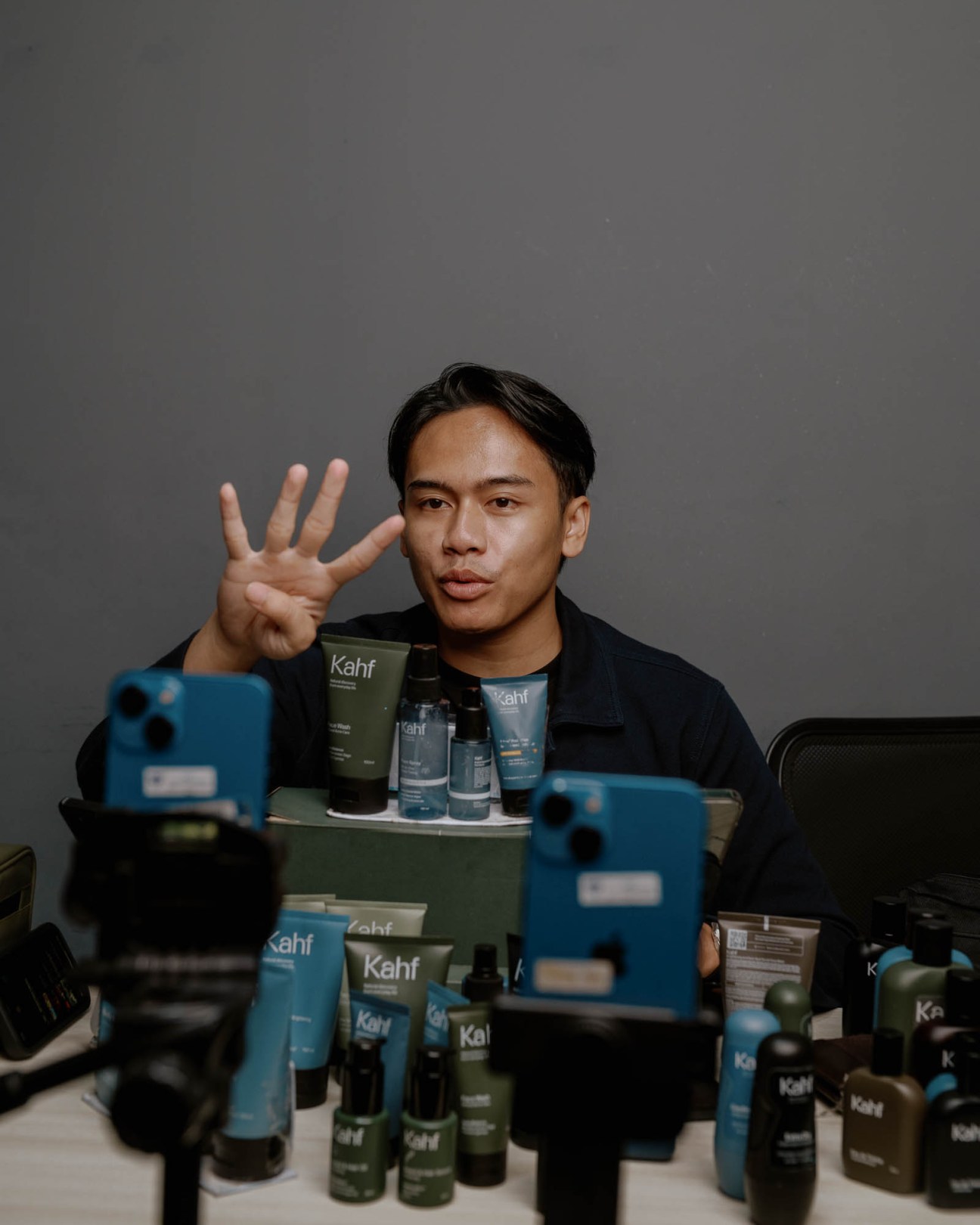
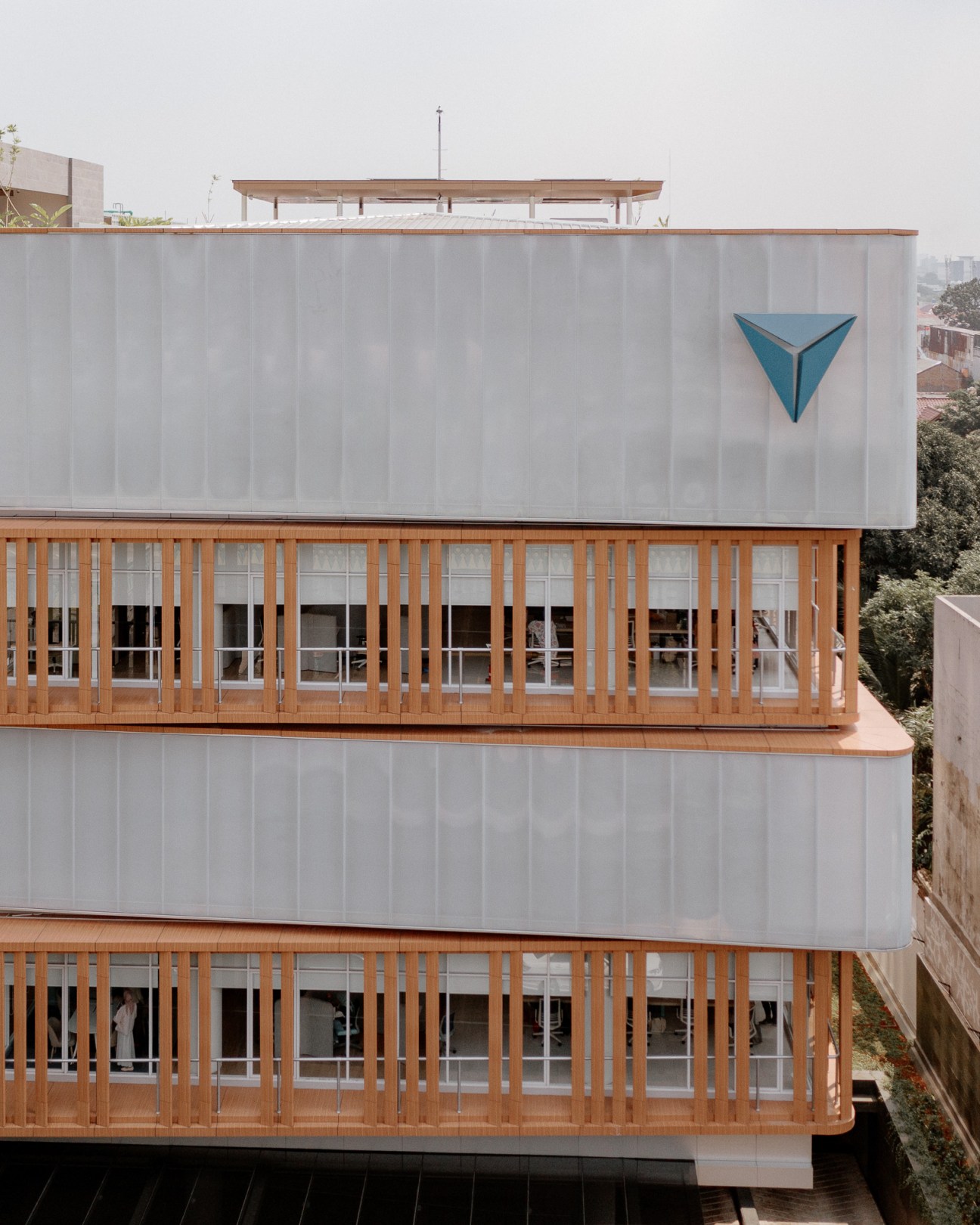
The group’s success is reflective of the explosive growth of the country’s broader beauty and skincare sectors, which generated about $7.4bn (€6.5bn) in revenue in 2024. Paragon accounts for 25 per cent of the market; that equates to enormous volumes of brightening cream, compact powder and cosmic lash-volume mascara. Last year customers bought about 30 million facial cleansers by Wardah and lip creams by Oh My Glam, another make-up label under the Paragon umbrella. There’s also plenty of room for further growth. Sunscreen is flying off the shelves but only 25 per cent of Indonesia’s 282 million people currently use it.
Paragon makes up to six million items a week and about 2,000 types of products. At its factory compound in the Banten province, production is split by category: powders in one building, lipsticks and other semi-solids in another. During Monocle’s visit to “liquids and creams”, khaki bottles of facewash are coming off the production line. The clean branding belongs to Kahf, Indonesia’s top male grooming brand. The label’s rapid growth (it launched in 2020) is emblematic of Paragon’s successful formula: employ the right people and empower them to innovate.
Two product developers in their twenties, Reza Sukamto and Billy Dharmawan, came up with Kahf (“cave” in Arabic) while completing their management-trainee programmes. They proposed a brand for Muslim men that could emulate the success of Wardah’s halal beauty range for women. When management approved the idea, the duo got to work, seeking to understand their target market. “There are all kinds of stereotypes about Muslim men but by spending time in the community we realised how wrong they are,” says Sukamto, a microbiology graduate. “Muslim men are actually progressive and open to discussing new things, such as inclusivity and social impact. Their spending is high and they have high standards for the products they use.”
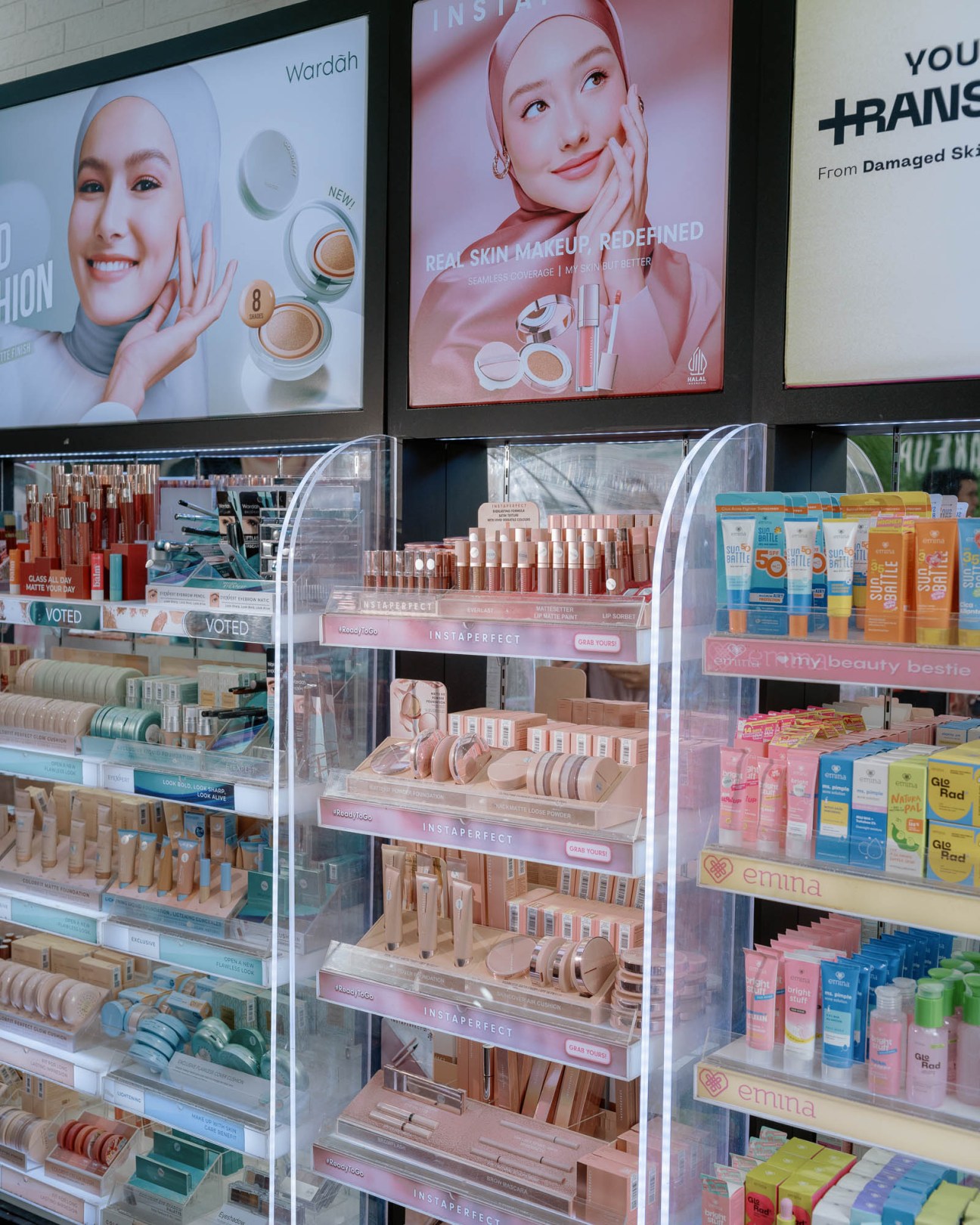
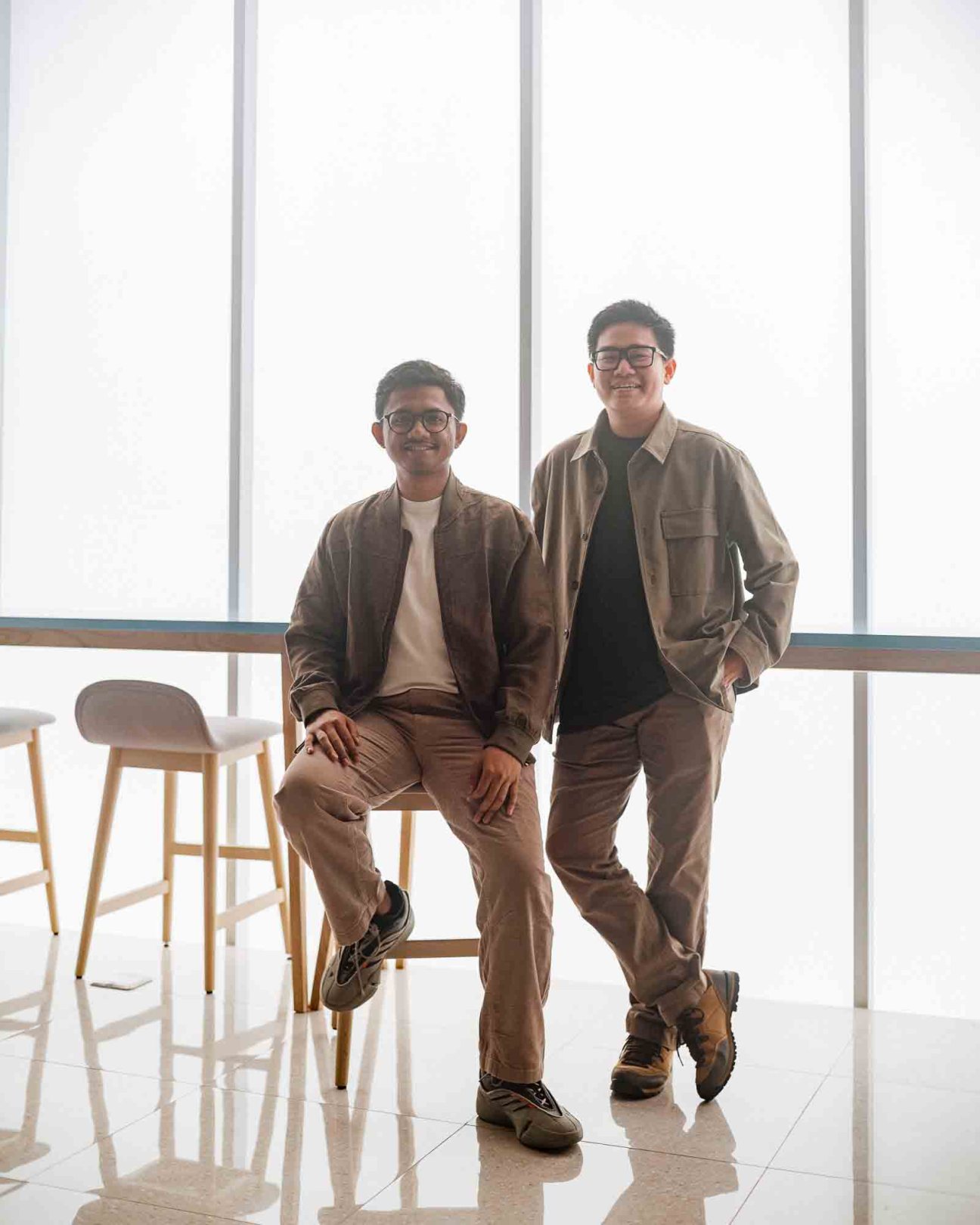
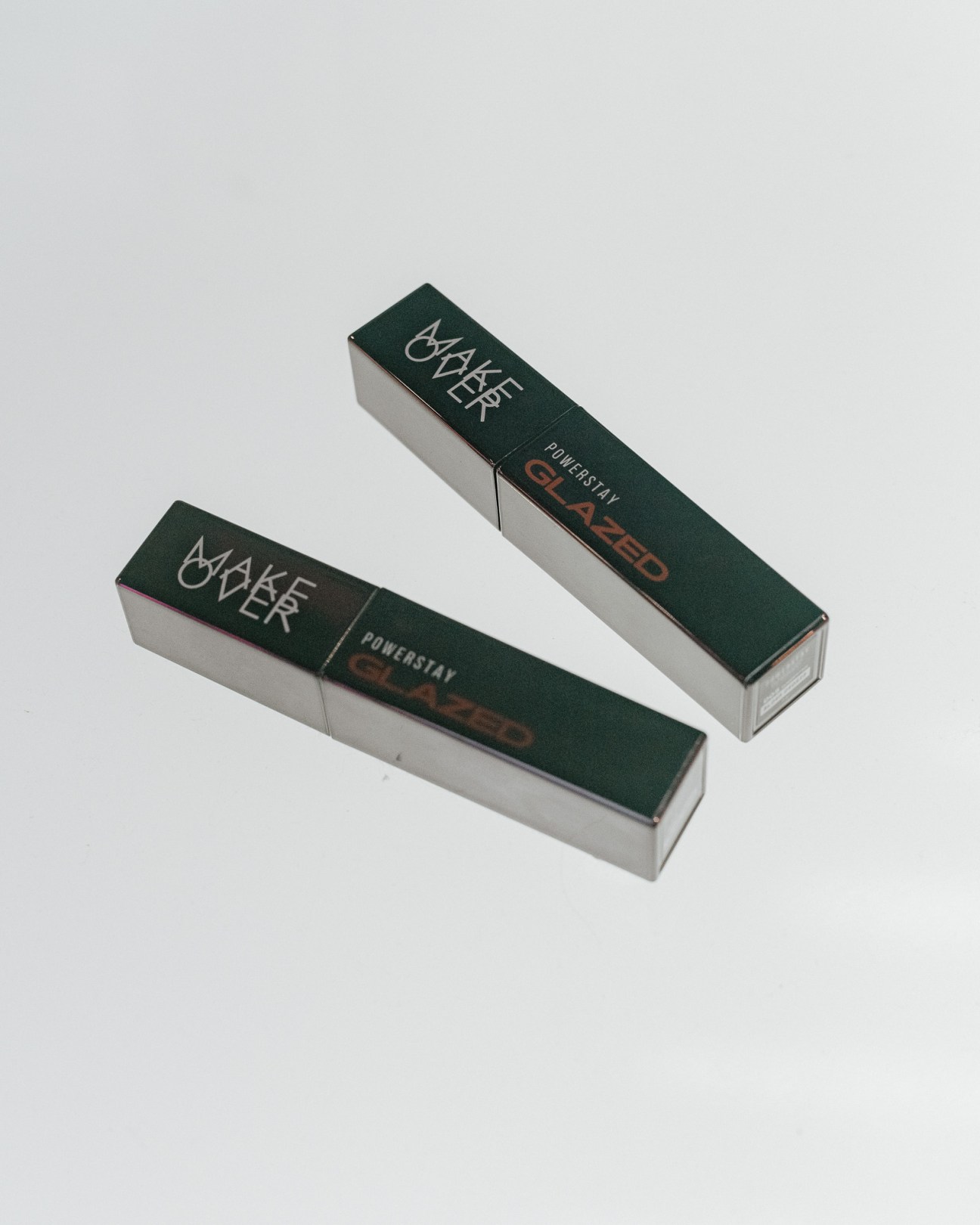
The black-bottled eau de toilette Revered Oud was Kahf’s first big hit. Since then, its body washes, deodorants, sunsticks, hair pomade and beard serums have found success among Indonesian men irrespective of religion. Apparel is next. “We want to become a one-stop solution for all men,” adds Sukamto.
Paragon Corp turns 40 this year. It was founded in 1985 by Nurhayati Subakat, who quit her quality-control job at the German haircare company Wella to launch her own professional haircare product. The line quickly became popular among Jakarta’s salons and her three children now run the family-owned company. They all had to chip in.“Production took place on the second floor of our house and, as children, we had to help pack the bottles in the boxes and take telephone orders,” says Sari Chairunnisa, the youngest of the Subakat siblings and the company’s deputy CEO and head of research and development. She joined her mother’s company in 2014 after completing her studies as a doctor and dermatologist.
Paragon’s annual revenues are roughly 400 times bigger today than at the start of this century. The turning point came between 2008 and 2010 when a Hijrah movement – a journey of self-improvement to become more devoted – kicked off in Indonesia, the world’s largest Muslim country. More and more women opted to wear a hijab as an expression of their Islamic values and Wardah’s halal certifications and campaigns, featuring models wearing headscarves, suddenly struck a chord.
“That lifestyle and that behaviour weren’t being represented by Maybelline or Revlon,” says Chairunnisa, who wears a headscarf and has experienced at first hand how hijabs went from holding back careers to opening doors. Modesty and make-up might sound like a paradox but not to Chairunnisa, who pulls off both. Simple looks that achieve a clear, blemish-free complexion are big money here.
Opinions vary on what triggered the Hijrah movement. Chairunnisa points to the end of Suharto’s oppressive 30-year dictatorship in 1998. “We have since been able to express our identities as Muslims or Chinese and not only as Indonesians,” she says.True or not, Indonesia’s conservative shift is continuing – and might have huge implications. From next year, all beauty and cosmetics on sale in Indonesia must be certified halal, posing a challenge for Chinese and Western competitors, which will either need to abide by the new certification standards or place warning stickers on their products, informing customers that they are not compliant. The legislation was introduced more than a decade ago but companies were given time to comply. While this might seem like a big win for Paragon, for Chairunnisa it’s “business as usual”. The company has never used halal as its unique selling point and cannot claim exclusivity.
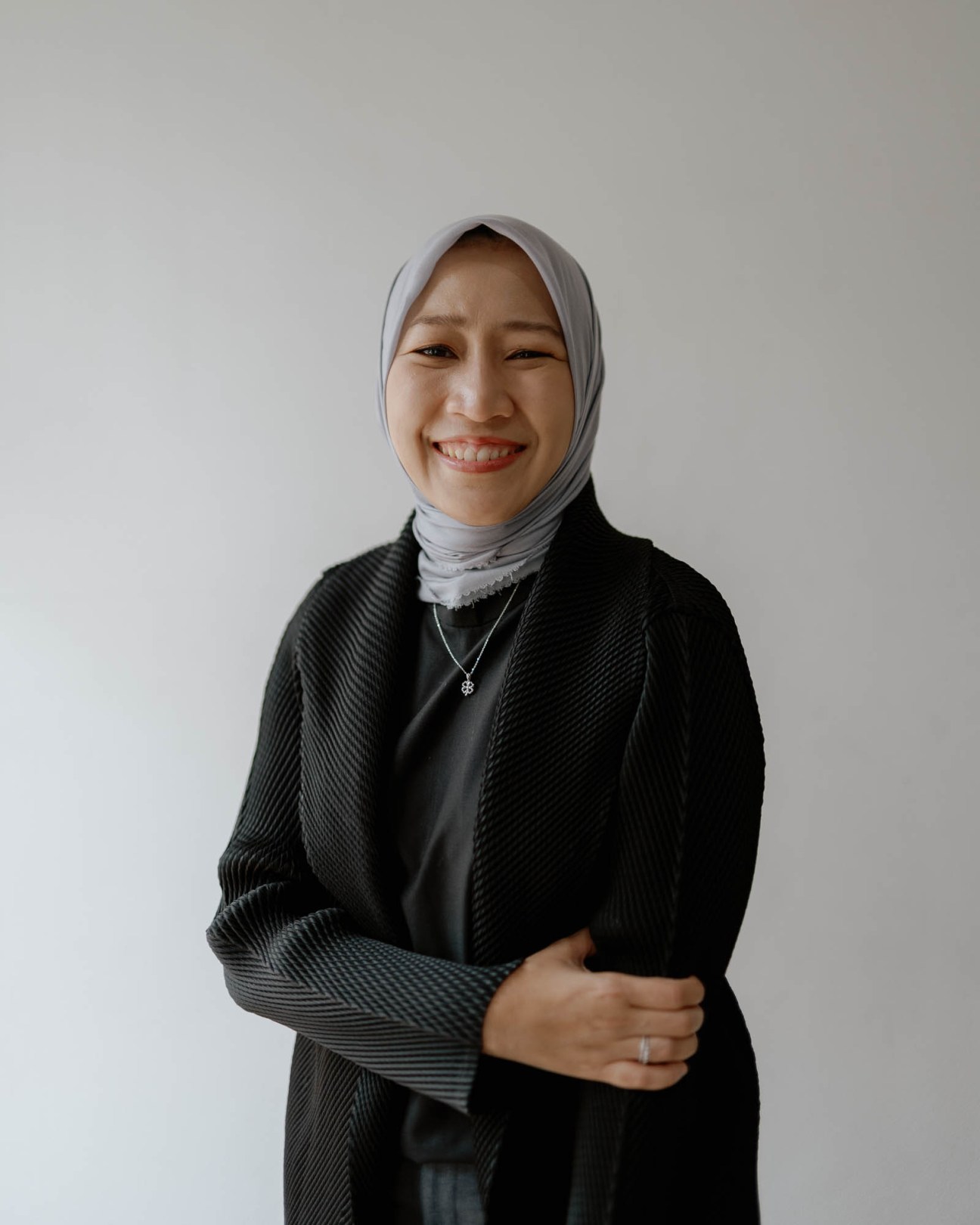
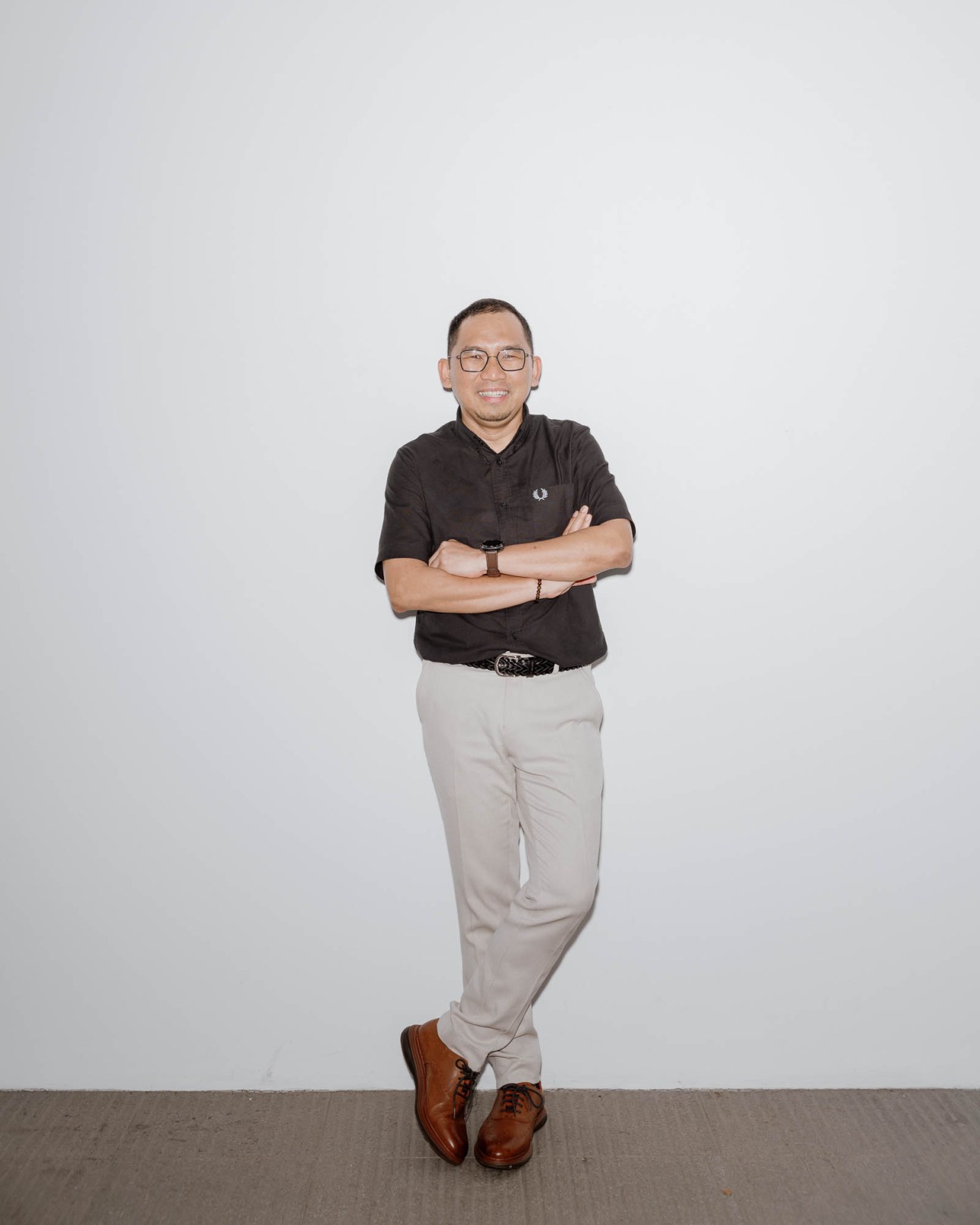
The hard work was done in the 1990s and early 2000s, when Paragon’s procurement team travelled the world to educate suppliers of raw materials, such as glycerin and vitamin D, about halal certification. “Now 95 per cent of our raw materials are being imported from France, the US, Japan, South Korea and China,” says Chairunnisa. “We told these suppliers that halal is for the Indonesian consumer, not for Paragon, so try to imagine the number of cosmetic companies in Indonesia and how much they will buy from you.”
The focus at Paragon is broadening the concept of halal beauty to resonate with international audiences regardless of religion. New halal brands are also committing to ethical testing and catering to a wide range of skin tones. For example, professional make-up brand Makeover has become a big hit with non-Muslim consumers, largely thanks to its flagship cushion blusher, which comes in 24 shades – beating every other brand in the market. “Right now, halal beauty is still very much rooted in religion but, for me, it’s about creating good products – a very global concept,” says Subakat, explaining that there’s plenty of potential for growth in international, non-Muslim markets.
It’s partly why Paragon opened new headquarters in February: a modern, open-plan space in South Jakarta reflective of the business’s global ambitions. About 14,000 people (referred to as Paragonians internally) work here, while the three Subakat siblings float around the firm’s Jakarta and Banten properties.This agility and flat hierarchy has given Paragon the edge over the multinational corporations that have been slower to react to the market. But there is no letting up.
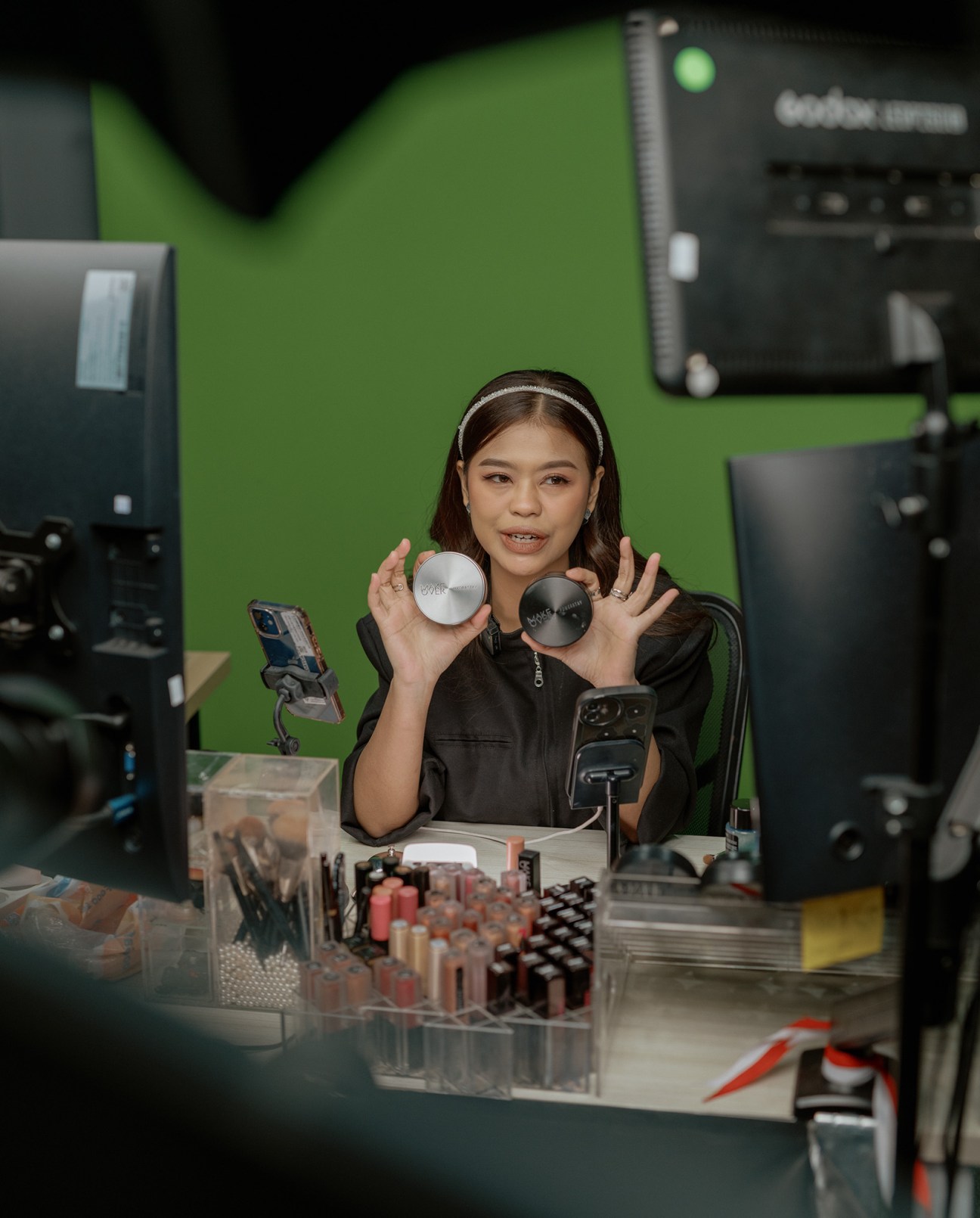
Competition is getting tougher, with a wave of new entrants, both local and international, attempting to enter the world’s fourth-most-populous country. Chinese skincare brands, such as Skintific, have aggressively entered Southeast Asia this decade. Their arrival coincided with the coronavirus pandemic but both disruptions ended up being a “blessing in disguise” for Paragon. They forced the company to unlearn its old ways and begin innovating across departments, from product development and design to sales and marketing. “We see it as a calling to improve ourselves,” says Chairunnisa, who is more curious than fearful about China’s envelope-pushing approach to e-commerce. Harman Subakat, the ceo, also waves away any concerns – the market is too undersaturated for him to have to worry. The country’s young population is still growing, so there’s plenty of skin in the game. “Do you know how many Indonesian men use deodorant?” Subakat says. “About 30 per cent.”
In answer to the competition, Paragon began livestream shopping in 2023 and unveiled a purpose-built filming studio last year. Inside the low-rise, warehouse-style building near the head office, sales staff sell products on four e-commerce platforms: TikTok, Shoppee, Lazada and Tokopedia. A typical eight-hour shift includes two hours of livestreaming, two hours’ rest, two more hours of selling and then two hours of content creation. There’s always someone on-screen and midnight is one of the peak times for selling. “Every minute matters,” says our guide, Evelyn, who shows Monocle the different studios. Every host sits in front of several cameras and lights. There’s a green or purple screen behind them and a table full of products at their fingertips. By the end of a shift, faces and arms are covered in different shades of red and brown.
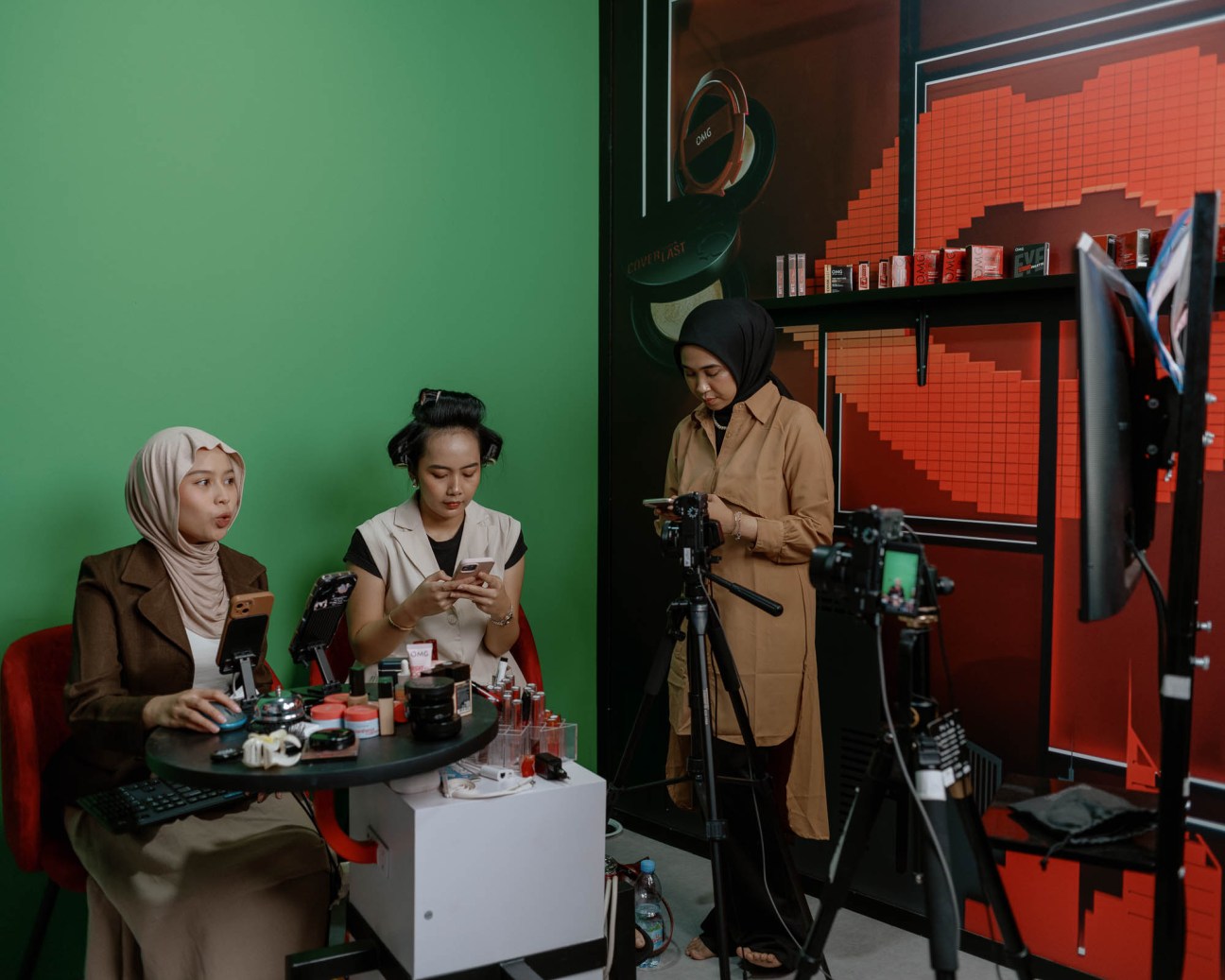
Many of the hosts are former flight attendants and each is matched with a specific brand. Those with a “Wardah face” – clean, calm and kind – push the flagship product and tend to wear a hijab. Labore hosts don white coats and conduct interviews with dermatologists, whereas pink is the wardrobe colour for Instaperfect, a “Halal glam” brand that grew out of Wardah. Yuui is Makeover’s star host. She was recruited from an offline shop, which remains Paragon’s main sales channel. Dressed all in black, she speaks and smiles non-stop, periodically ding-dinging a metal bell to announce a promotion.
As the sun sets over Jakarta and observant Muslims across the capital await the evening call to prayer, Monocle asks Harman Subakat about Paragon’s future. Go public? Enter the Middle East? Achieve an annual turnover of $2bn? Subakat remains tight-lipped and insists that there isn’t a big revenue goal to hit or a global roll-out plan. Individual teams are not even given targets – the focus remains on social impact, healthy growth and empowering employees. “Having a good dream and taking good action” is how Subakat summarises the company’s ethos. Foreign investors would be tearing their hair out at this point but Paragon is an Indonesian family business with its own tried-and-tested formula for success.
Indonesian beauty brands to watch
Oaken Lab
Husband-and-wife duo Chris Kerrigan and Cynthia Wirjono launched the perfume brand Oaken Lab in 2018 as a salve for mass- market deodorants and skin-tingling aftershaves. The Jakarta perfumer now has three shops in Indonesia and is stocked by top hotels, including 25 Hours in Jakarta and Potato Head in Bali.
Hale Skincare
Established in 2019, Hale thrives on simplicity, with clean graphic design, fragrance- and alcohol- free ingredients and competitive price points. Its co-founder, Bellinda Putri, had severe skin problems as a teenager and was inspired by her experiences of using Australian skincare while at university to create an affordable skincare line for Indonesia.
Kusuma Kosmetika
Founded by Tiara Budiendra, this new make-up brand embraces Indonesian heritage, starting with a deliberate decision to forgo the industry trend for English brand names. Kusuma Kosmetika’s vegan products cater to the skin tones of the people who populate
the vast archipelago, favouring darker shades over the whitening products popularised by the Korean beauty wave.


